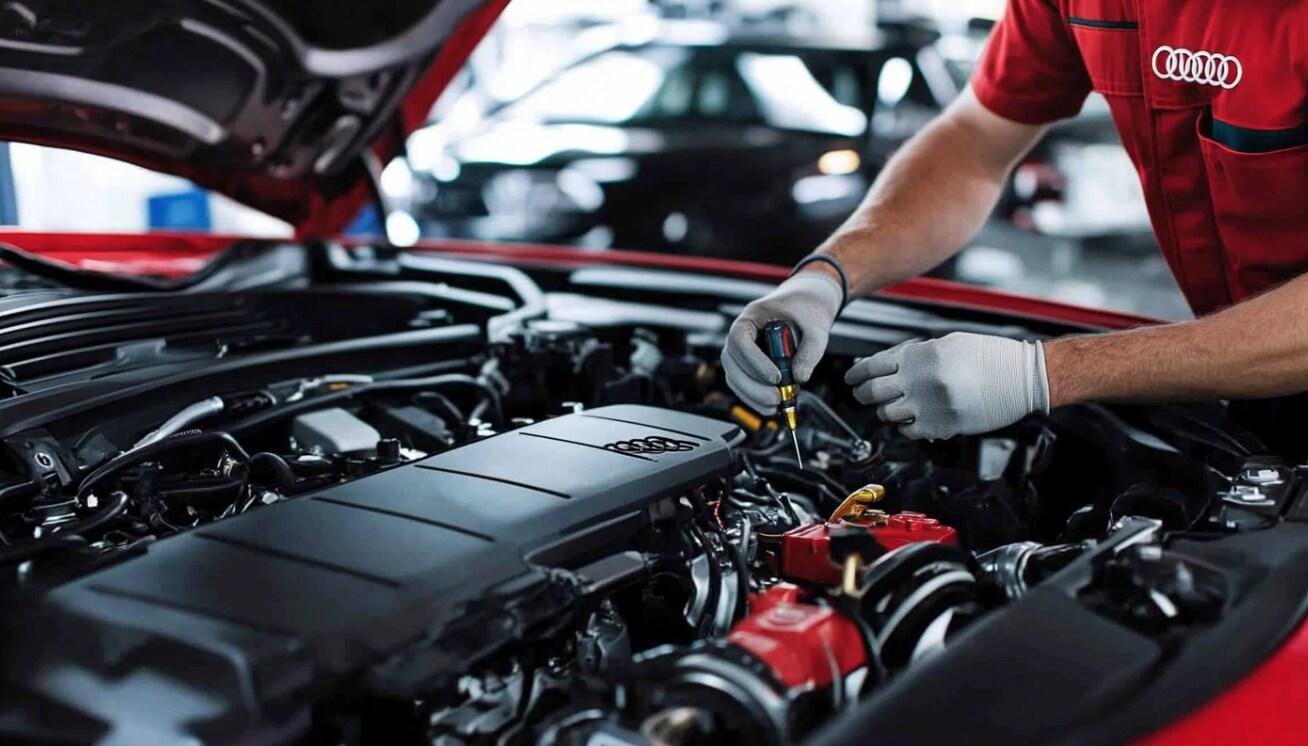
Recognizing the Signs of a Coolant Leak
A coolant leak may present itself in various forms. You may notice a persistent drop in coolant levels, spots of coolant on the ground, white exhaust smoke indicating internal leaks, or overheating without visible leaks. It's critical to monitor these signs closely to prevent damage to your Audi's engine.
The Risks of Ignoring a Coolant Leak
Neglecting a coolant leak can lead to low coolant levels, engine overheating, and activation of the check engine light. These issues may impact sensor performance, including the thermostat and oxygen sensor, which can result in expensive and extensive repairs in the future.
Cost Considerations for Coolant Leak Repairs
When consulting a professional, coolant leak repairs can range between $150 and $2,000. Keep in mind that a specialized Audi service center, like Audi Jacksonville, offers service pickup and delivery within 20 miles for services over $300, ensuring convenience and expertise in handling your vehicle's needs.
The Importance of Timely Coolant Leak Repairs
Addressing a coolant leak immediately is imperative to prevent irreversible engine damage and avoid costlier repairs down the line. Audi Jacksonville emphasizes this aspect of vehicle maintenance, where caring for your car is not just about preserving its performance but ensuring it remains a reliable part of the Hanania Family.
Understanding the Complexity of Coolant Leak Repairs
Coolant leaks can range from straightforward fixes, such as tightening a hose clamp or replacing a worn hose, to more complex issues like a blown head gasket, which can be labor-intensive and costly. In such cases, a sealant might offer a temporary fix, but a complete replacement is usually the longterm solution.
Diagnosing Coolant Leaks in Your Audi
External Coolant Leaks
To determine the source of an external leak, inspect hoses, the water pump, and the radiator for any signs of cracks or leaks. Visible coolant pools below your Audi or residue around hose connections typically indicate an external leak.
Internal Coolant Leaks
Internal coolant leaks, while not immediately visible, will manifest through symptoms like decreased cabin heat, a sweet smell in the interior, or moisture under the dashboard. This could signal that the leak resides within the engine or the heater core.
Steps to Repairing a Coolant Leak
For DIY enthusiasts, external leak fixes might involve replacing hoses or clamps. However, complex issues like a damaged heater core or a blown head gasket warrant professional assessment and repair, available through Audi Jacksonville's certified technicians. Utilizing genuine Audi parts from our Parts Department ensures compatibility and longevity of repairs.
Maintaining Your Audi's Cooling System
Regular maintenance includes monitoring coolant levels, inspecting hoses for wear, and ensuring the system is free of blockages. Scheduling appointments for coolant flushes or engine inspections can prevent potential leaks before they become serious issues. Audi Jacksonville's commitment to luxury car care means special attention is given to every detail of your vehicle's performance and maintenance needs.
